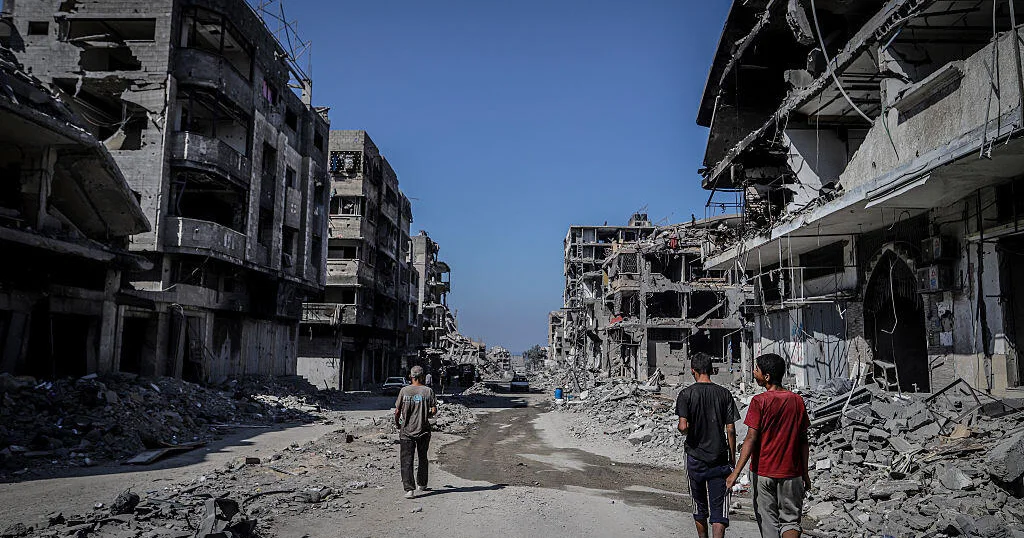A fragile truce in Gaza recently faced a significant challenge as Israel accused Hamas of violating the ceasefire. Following these allegations, Israel conducted air and artillery strikes on multiple targets within the Gaza Strip, which led to the death of several individuals. Prime Minister Benjamin Netanyahu convened with security officials to strategize options moving forward, while tensions increased on both sides as confrontations persisted.
| Article Subheadings |
|---|
| 1) Allegations of Ceasefire Violations |
| 2) Military Response and Casualties |
| 3) Statements from Leadership |
| 4) Ongoing Negotiations and Hostages |
| 5) International Concerns and Future Implications |
Allegations of Ceasefire Violations
On Sunday, Israel reported that Hamas had breached the conditions of the ceasefire, leading to a series of retaliatory strikes in the region. An Israeli security official, speaking on the condition of anonymity, indicated that aid transfers to Gaza had been halted “until further notice.” The Israeli military claimed that Hamas fired at Israeli soldiers, prompting their response. This claim has set the stage for an escalation of hostilities, undermining previous agreements made for a peaceful resolution.
Military Response and Casualties
In responding to Hamas’s alleged actions, the Israeli military activated air and artillery strikes targeting various locations in Gaza. Sources indicated that these strikes were part of Israel’s broader strategy to deter Hamas and prevent future attacks. Confirmed reports from hospitals across Gaza indicated that at least 38 individuals had died due to the violence, marking a significant rise in casualties since the commencement of hostilities. This cycle of violence has heightened concerns over civilian safety, especially in densely populated areas.
Statements from Leadership
In a crucial meeting, Prime Minister Benjamin Netanyahu consulted with security heads and directed the military to act decisively against what he termed “terrorist targets.” However, he refrained from suggesting a return to all-out war. Meanwhile, Hamas countered these allegations, asserting that they were not involved in the clashes reported in Rafah, emphasizing their commitment to upholding the agreed-upon ceasefire terms. A statement from the group asserted their lack of knowledge regarding the supposed incidents, positioning themselves as victims of misinformation.
Ongoing Negotiations and Hostages
While tensions flared, negotiations regarding hostages and ceasefire terms continued behind the scenes. Israel’s military acknowledged the identification of two hostages released by Hamas, fueling speculation about the next phase of negotiations. Concurrently, the issue of the Rafah border crossing remained contentious, as Israel insisted it would remain closed “until further notice.” The reopening depends largely on Hamas’s compliance and the return of deceased hostages’ remains. The dynamics surrounding hostage negotiations greatly complicate the ceasefire landscape.
International Concerns and Future Implications
The U.S. State Department expressed concerns regarding reports suggesting that Hamas might target Palestinian civilians, warning that such actions would severely violate the ceasefire agreement. The situation’s fragility has prompted international calls for both parties to adhere closely to the terms of the truce. Observers are now focused on how the complications around hostages, military actions, and further negotiations will play out in the coming days and months. Additionally, apprehension surrounding the ongoing military operations suggests potential future escalations which could complicate peace efforts.
| No. | Key Points |
|---|---|
| 1 | Israel accused Hamas of violating the ceasefire, prompting military strikes. |
| 2 | Casualties reported in Gaza reached at least 38 following Israeli airstrikes. |
| 3 | Hamas denied involvement in reported clashes and reaffirmed their commitment to the ceasefire. |
| 4 | Negotiations regarding hostages and ceasefire terms are ongoing, with significant implications for future peace. |
| 5 | International bodies expressed concern over potential escalation and civilian harm. |
Summary
The resumption of hostilities between Israel and Hamas presents critical challenges for emerging ceasefire agreements, highlighting the delicate balance of peace in the region. As accusations and violent actions mount, the international community closely monitors the ramifications of this conflict on civilian populations and future negotiations. The ongoing situation not only threatens the lives of those directly involved but could potentially destabilize broader initiatives aimed at achieving lasting peace in the region.
Frequently Asked Questions
Question: What led to the recent escalation in violence in Gaza?
The violence escalated following allegations from Israel that Hamas violated the terms of a ceasefire, leading to military strikes in Gaza.
Question: What are the current casualty figures reported from the conflict?
At least 38 individuals are reported dead in Gaza as a result of the violence since the recent military operations began.
Question: How has Hamas responded to the allegations of ceasefire violations?
Hamas has denied involvement in the recent clashes and emphasized their commitment to maintaining the ceasefire agreement they had previously established.
